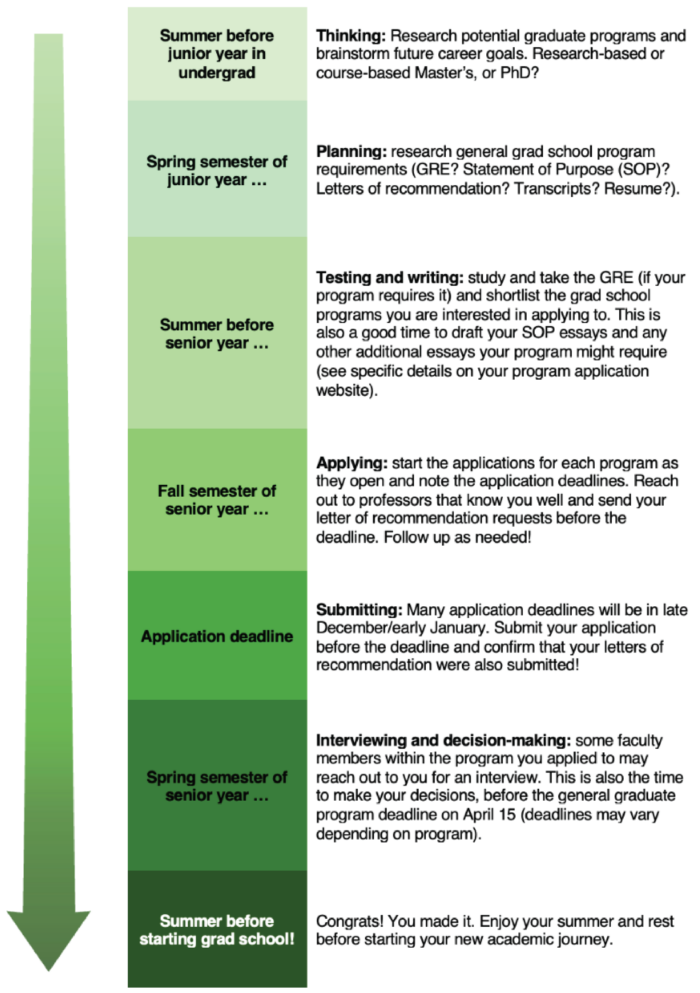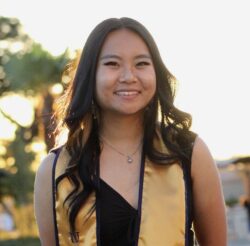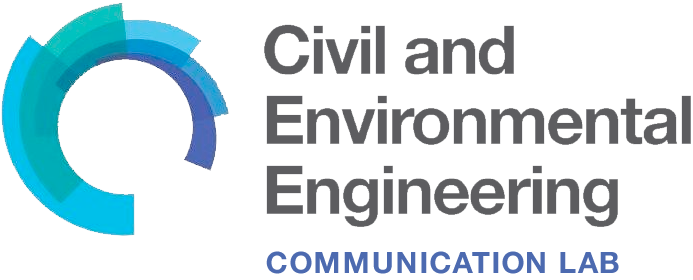So, you’re thinking about applying to grad school in the U.S. and you’re still an undergrad? Kudos to you for planning ahead! Applying for graduate school can feel like a monumental task, but with a strategic approach you can navigate the process smoothly and confidently.
Before delving into the details of my process, here’s the high-level timeline I developed to succeed in my grad school applications during my senior year of undergrad:

Summer, Before Junior Year: Thinking
As soon as I decided to try applying to grad school (for me, this was the summer before junior year), I started thinking about potential grad school programs that I would be interested in and my ultimate career goals. At this point in my academics, I felt very flexible in my interests and open to various topics of study. I knew I wanted to continue studying in my major, Civil and Environmental Engineering, since the field is often so interdisciplinary. A big question I asked myself was: research or course-based Master’s? I liked the idea of research and coming up with new ideas for the field, but I didn’t have much research experience outside of some projects from classes and clubs. Actually, I didn’t think I would be accepted at all into a PhD if I applied without a Master’s (an old-fashioned idea now!). I made a list of pros and cons for both types of Master’s programs and asked graduate students that I personally knew about their experiences.
I decided that I would focus on applying to research-based Master programs. I wanted to open the doors to other potential career opportunities (in industry and academia) and challenge myself to grow professionally outside of my comfort zone. I knew that research in an advanced and formal setting (i.e., a graduate program) would allow me to gain new skills.
Spring Semester, Junior Year: Light Planning
I did some brief research into general grad school program requirements–GRE, Statement of Purpose (SOP), letters of recommendation, transcripts, and resume–by looking up program websites, starting off with my own undergraduate university’s graduate program website, and scheduled GRE testing for the upcoming summer before senior year. I also started thinking about which professors I wanted to ask for letters of recommendation. I created a master resume of all the activities I had been involved in undergrad. For me, these activities included summer internships, leadership positions in civil engineering clubs, volunteer work teaching elementary school students, sports, or essentially everything I did during undergrad (academic and not).
Summer, Before Senior Year: Heavier Planning and Writing
Heavier Planning
During the summer, I took a month to study for the GRE before taking it (this reminded me of the SAT, and luckily, my scores for the writing, quantitative, and reading sections didn’t turn out too bad!). I started by taking a full-length practice test to get a benchmark GRE score. Each day leading up to the test, I would set aside a few hours to practice problems in my struggle areas. I prepared for the quantitative and reading sections by becoming familiar with the reasoning behind the answers and improving my vocabulary. For the writing section, writing outlines for example prompts helped me practice how to brainstorm quickly!
At the same time, I shortlisted universities with grad school programs that best fit my goals and interests (this required deep investigation into the faculty and their research at each school). This is a good time to think deeply about your personal priorities: prestige, location, funding, resources, research fit, whether or not the program has a GRE requirement, public transportation, etc. I ended up with a list of six graduate programs, but all in different disciplines within CEE!
Writing
Creating this university shortlist actually helped me in drafting my SOPs because I already knew which professors I wanted to talk about in my essays at this point. This also meant I ended up writing six different SOP essays for each of the six different programs since they were so different. For each school, I was applying to different disciplines in CEE that I was interested in exploring at a more advanced level. My undergrad experiences allowed me to be quite flexible in this approach, so I was able to pick and choose my experiences that best fit each program (the master resume helped a lot here). I remember finding the MIT CEE Comm Lab article on SOPs to be really helpful (a nice full circle moment!) because it gave me a better idea of what to write, though some schools had slight differences in what they wanted in the essay. Once I wrote one SOP fully, it was much easier to write the other essays, as I followed a similar structure for each.
Some programs also asked for an additional Personal Statement essay, so I also wrote a draft on some of my diverse experiences (i.e. internships, club leadership positions, volunteer work) throughout undergrad. This essay is a bit more personal, and I chose to write it on my growth as a student exploring my career. The MIT CEE Comm Lab article on Personal Statements has more information on this type of essay!
Fall Semester, Senior Year: Applying
At the beginning of the school year (before most applications opened in mid-October), I emailed some potential grad school advisors (not everyone I wrote about!) at the different universities asking briefly if they were accepting any grad students for this upcoming year. I did this because I wanted to apply for a research-based Master’s, and it was helpful to get an initial idea of what kind of open opportunities were available at the school.
I also reached out to three professors at my undergrad for letters of recommendation. I tried to ask professors who I felt could speak best to my academic and leadership abilities and gave them my resume, a summary of my achievements, and specific points to highlight that reflected my varied interests in the grad programs I was applying to. Luckily, they all said yes.
When applications opened, I layed out everything that was required into a master spreadsheet with the program name, submission requirements, deadlines, and the status of each application. I sat down one weekend and applied!
Spring Semester, Senior Year: Interviews and Decisions!
Of the six programs I applied to, three faculty members from each program requested interviews with me, which ended up being informal chats (whew!). I still prepared for these by knowing my application very well (especially my transcript, resume, and SOP) and researching the professor’s lab and interests. This was also a great time to ask questions about program/degree logistics, working with the professors, and grad life at the school. Not all programs will schedule interviews, so do not worry if you do not receive any!
The universal deadline for sending in a decision was April 15 (may vary between programs), so I had to make a decision by then. Going to open house/accepted student weeks helped, and ultimately, I chose to work with Dr. Dara Entekhabi here at MIT!
Bonus Tips to Keep Your Sanity
- Stay Very Organized: Keep track of deadlines and requirements. I like to use master spreadsheets to detail everything out.
- Use Your Resources: There are a lot of great resources online for guidance on how to manage each step of the grad school application process. As mentioned, the CEE Comm Lab has two great Commkit articles on writing your Statement of Purpose (I used this myself!), Personal Statement (that I co-authored!), and crafting a resume.
- Seek Support: Lean on friends, family, and mentors for guidance and encouragement.
- Take Breaks: Don’t let the process overwhelm you, especially after submitting!
- Do not wait too long to start the application process! It can sometimes be helpful to work backwards from the due date and make a timeline that better fits your own schedule and circumstances, including if student loans or other funding sources are needed.
 Please note this timeline is what worked best for me and my schedule and may look different for you! I was applying as a U.S. citizen, so my timeline did not involve additional steps that international students need to take (check out an international student’s grad application timeline). If you need personalized help with preparing your grad school application and setting your own timeline, and you are part of the MIT community, you can schedule a Comm Lab appointment. We will work through it together!
Please note this timeline is what worked best for me and my schedule and may look different for you! I was applying as a U.S. citizen, so my timeline did not involve additional steps that international students need to take (check out an international student’s grad application timeline). If you need personalized help with preparing your grad school application and setting your own timeline, and you are part of the MIT community, you can schedule a Comm Lab appointment. We will work through it together!
Best of luck with your applications!
Additional resources
Check out the collection of free CommKit Resources created by the MIT CEE Comm Lab team.
